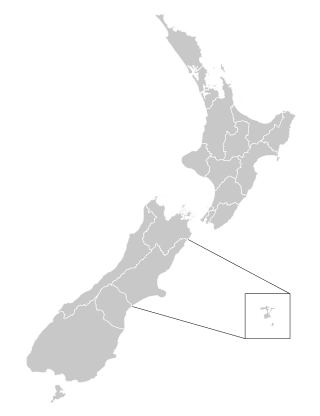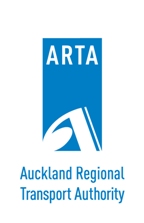
The Kowloon-Canton Railway Corporation is a Hong Kong wholly government-owned railway and land asset manager. It was established in 1982 under the Kowloon-Canton Railway Corporation Ordinance for the purposes of operating the Kowloon–Canton Railway (KCR), and to construct and operate other new railways. On 2 December 2007, the MTR Corporation Limited (MTRCL), another railway operator in Hong Kong, took over the operations of the KCR network under a 50-year service concession agreement, which can be extended. Under the service concession, KCRC retains ownership of the KCR network with the MTRCL making annual payments to KCRC for the right to operate the network. The KCRC's activities are governed by the KCRC Ordinance as amended in 2007 by the Rail Merger Ordinance to enable the service concession agreement to be entered into with the MTR Corporation Limited.

The Welsh Government is the devolved government of Wales. The government consists of ministers and deputy ministers. It is led by the first minister, usually the leader of the largest party in the Senedd, who selects ministers and deputy ministers with the approval of the Senedd. The government is responsible for tabling policy in devolved areas for consideration by the Senedd and implementing policy that has been approved by it.

The Victoria University of Wellington Students' Association (VUWSA) is the official student association at Victoria University of Wellington, New Zealand. VUWSA was established in 1899 as the Victoria University College Students' Society.
The Electoral Commission is an independent Crown entity set up by the New Zealand Parliament. It is responsible for the administration of parliamentary elections and referendums, promoting compliance with electoral laws, servicing the work of the Representation Commission, and the provision of advice, reports and public education on electoral matters. The commission also assists electoral agencies of other countries on a reciprocal basis with their electoral events.

District health boards (DHBs) in New Zealand were organisations established by the New Zealand Public Health and Disability Act 2000 under the Fifth Labour Government, responsible for ensuring the provision of health and disability services to populations within a defined geographical area. They existed from 1 January 2001, when the act came into force, to 30 June 2022. Initially there were 21 DHBs, and this was reduced to 20 organisations in 2010: fifteen in the North Island and five in the South Island. DHBs received public funding from the Ministry of Health on behalf of the Crown, based on a formula that took into account the total number, gender, age, socio-economic status and ethnic mix of their population. DHBs were governed by boards, which were partially elected and partially appointed by the minister of Health.

The Auckland Regional Transport Authority (ARTA) was the central co-ordinating agency for transport in the Auckland Region of New Zealand from 2004 to 2010. In this role, ARTA provided public transport services, assigned funding and subsidies, and organised and advised on many aspects of regionwide transport. ARTA was under the control of the Auckland Regional Council (ARC) and was replaced by Auckland Transport on 1 November 2010.
Transit New Zealand, which existed from 1989 to 2008, was the New Zealand Crown entity responsible for operating and planning the New Zealand state highway network. It also concerned itself with developments close to state highways, as it considered the potential additional traffic that these would create, and it was responsible for state highway landscaping.

The Public Service Commission, called the State Services Commission until 2020, is the central public service department of New Zealand charged with overseeing, managing, and improving the performance of the state sector of New Zealand and its organisations.

The Auckland Regional Council (ARC) was the regional council of the Auckland Region. Its predecessor the Auckland Regional Authority (ARA) was formed in 1963 and became the ARC in 1989. The ARC was subsumed into the Auckland Council on 1 November 2010.

Dame Frances Helen Wilde is a New Zealand politician, and former Wellington Labour member of parliament, Minister of Tourism and Mayor of Wellington. She was the first woman to serve as Mayor of Wellington. She was chairperson of the Greater Wellington Regional Council from 2007 until 2015, and since 2019 she has chaired the board of the Museum of New Zealand Te Papa Tongarewa.
Toitū Te Whenua Land Information New Zealand (LINZ) is the public service department of New Zealand charged with geographical information and surveying functions as well as handling land titles, and managing Crown land and property. The minister responsible is the Minister for Land Information, and was formerly the Minister of Survey and Land Information. LINZ was established in 1996 following the restructure of the Department of Survey and Land Information (DOSLI), which was itself one of the successor organisations to the Department of Lands and Survey.
Bicycle helmets have been mandatory for bicycle riders of all ages in New Zealand since January 1994.
Land Transport New Zealand was a Crown entity in New Zealand, tasked with promoting safe and functional transport by land, and includes responsibilities such as driver and vehicle licensing. It was created on 1 December 2004 by the Land Transport Management Amendment Act 2004, was the successor entity to the disestablished Land Transport Safety Authority and Transfund New Zealand, and was disestablished from 31 July 2008, merging with Transit New Zealand to become the NZ Transport Agency.
NZ Transport Agency Waka Kotahi (NZTA), is a New Zealand Crown entity tasked with promoting safe and functional transport by land, including the responsibility for driver and vehicle licensing, and administering the New Zealand state highway network. Waka Kotahi means 'one vessel' and is intended to convey the concept of "travelling together as one".

Amy Juliet Adams is a former New Zealand politician of the New Zealand National Party and the current chancellor of the University of Canterbury, Christchurch, New Zealand. She was the Member of Parliament for Selwyn from 2008 to 2020, when she retired.

Auckland Council is the local government council for the Auckland Region in New Zealand. It is a territorial authority that has the responsibilities, duties and powers of a regional council and so is a unitary authority, according to the Local Government Act 2009, which established the council. The governing body consists of a mayor and 20 councillors, elected from 13 wards. There are also 149 members of 21 local boards who make decisions on matters local to their communities. It is the largest council in Oceania, with a $3 billion annual budget, $29 billion of ratepayer equity, and 9,870 full-time staff as of 30 June 2016. The council began operating on 1 November 2010, combining the functions of the previous regional council and the region's seven city and district councils into one "super council" or "super city".

The organisation of the Bharatiya Janata Party (BJP) is based upon the Constitution of the BJP. The organisation of the BJP is strictly hierarchical, with the president being the highest authority in the party. The party is considered to be a cadre-based party that draws from the Hindutva-based ideology of its parent organisation, the RSS.
The Indigenous Land and Sea Corporation (ILSC) is an Australian federal government statutory authority with national responsibilities to assist Aboriginal and Torres Strait Islander people to acquire land and to manage assets to achieve cultural, social, environmental and economic benefits for Indigenous peoples and future generations. It was established as the Indigenous Land Corporation (ILC) following the enactment of the Native Title Act 1993.
Between 2015 and 2023, Auckland, New Zealand's largest city, considered introducing light rail lines to replace some of its most heavily used bus routes. Many of these new light rail lines would have reused the routes of Auckland's former tram system. Light rail systems have been proposed in Auckland throughout the late-20th and early 21st centuries following the closure of the tram system in the 1950s.

Wayne Kelvin Forrest Brown is a New Zealand politician and the mayor of Auckland since the 2022 Auckland mayoral election. He has worked in leadership roles in several large New Zealand businesses and public infrastructure organisations. He was mayor of the Far North District Council from 2007 to 2013.













